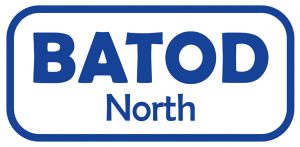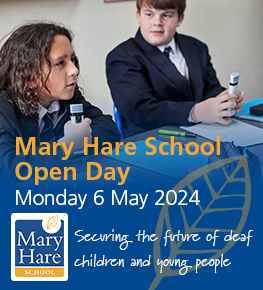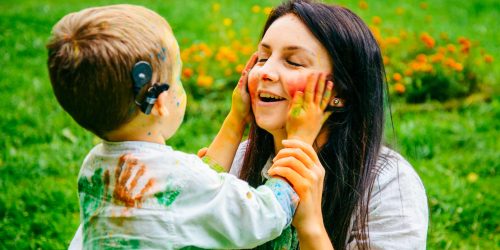Workshop abstracts for BATOD North study day, 10th November, Huddersfield
Please note: This content has been archived and therefore may no longer be up-to-date or relevant. It is kept online for your convenience. If you have any questions, please contact us.
Workshop abstracts for BATOD North study day, 10th November, Huddersfield
Nottingham Early Assessment Package: assessing progress in young deaf children and those with complex needs; Suzanne Harrigan, specialist Speech and Language Therapist, The Ear Foundation
The Nottingham Early Assessment Package, (NEAP) provides a framework for parents, teachers and speech and language therapists to monitor progress in young deaf children in the areas of:
- Communication and language
- Speech perception
- Speech production
The assessment includes questionnaires, criterion-referenced profiles, and video analyses, to enable evaluation to be carried out in non-clinical settings, and with very young children. The original NEAP has recently been adapted to use with children who are deaf with additional and complex needs; the complex NEAP.
This workshop aims to briefly describe the assessments found in the NEAP package. We will also spend time looking at the Complex NEAP and exploring how the measures can help us all to become skilled observers of a child’s progress, even when changes are subtle.
Assessing listening and linking to language: Trish Cope
Listening is a core skill that Teachers of the Deaf see as an important area of development at risk for deaf children. This workshop will provide an opportunity to consider what is involved in listening and how we can assess it – either directly or through observation or self-report. It will then look at how the results of language assessments might point to weak listening skills and the need to improve support for listening.
Developing and monitoring Higher Level Language Skills: Maria Cameron
Developing receptive and expressive language is an area that is familiar to Teachers of the Deaf. This workshop will go beyond the structure of language and look at how we support children’s development of the pragmatics of language – using language to explain, to predict, to negotiate, to give reasons and pose hypotheses. How early can we start this and how can we incorporate it more overtly into our practice.
The workshop will include videos, discussion and looking at a profile for monitoring these skills.
Reaching All Learners with iBooks: Zainab Patel
Reaching All Learners with iBooks looks beyond the text and static image experience. Imagine your students could see beyond a 2D image of a Viking long ship; now they can tap and manipulate to see all its sides, see above and below it. Students can experience much more to meet their visual, auditory, kinaesthetic and digital learning styles with these extraordinary resources. Educators are able to maintain student engagement and joy for learning and allow for independent, self-paced learning with lots of opportunity to assess all learners.
Speech Discrimination & technology: James Mander
Speech Discrimination is the ability to identify words in noise. This ability is often compromised with hearing-impaired individuals. This workshop provides a review of some of the latest of technology that can assist hearing-impaired children to identify words and provide support to guide professionals.
The workshop will:
- consider direction microphones and advanced scene analysis identifying words plus data logging on the latest set of NHS hearing instruments
- introduce Language Environment Analysis (LENA) assessment tool currently in use in the UK – a system that records and analyses words reaching the child over a period of a day
- explore if Multi Talker Network and Subnet communication with the children is an option for your classroom.
Hopefully there will be an opportunity to end with a “hands-on” session.
How about Audiological Assessment? An Overview: Gill Edgington
With advances in technology and research, the support and help offered to children with hearing loss is currently the best it has ever been. But all this help and support is reliant on accurate assessment of hearing type and levels. As technology demands more and more audiological information to ensure the best possible results for the child, this is demanding more accurate assessment of children’s hearing from a very young age. This workshop will cover assessment techniques for all ages, the advantages and pitfalls of these tests and practical applications of techniques for measuring outcomes for a child with amplification.





